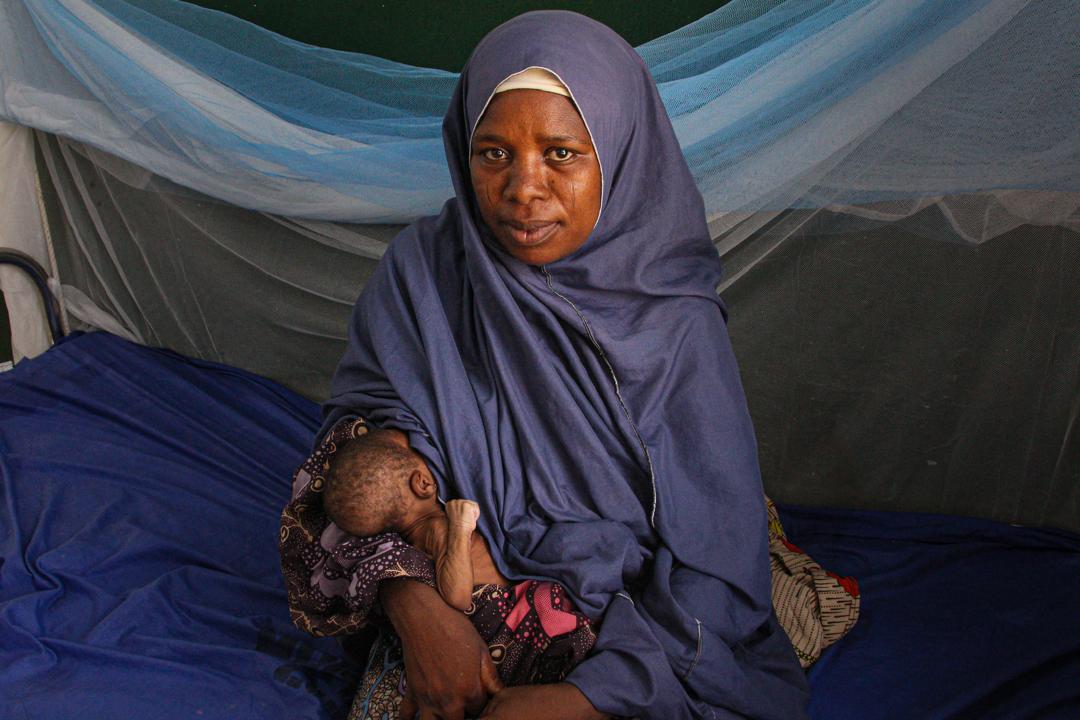NATIONAL NEWS
MSF Says One In Every Four Children In Zamfara’s Shinkafi, Zurmi Malnourished

Médecins Sans Frontières (MSF) and the Ministry of Health have reported that one out of every four children under the age of five in Zamfara’s Shinkafi and Zurmi areas is malnourished.
According to a statement issued on Thursday by MSF, also known as Doctors Without Borders, a mass screening was conducted in June by Médecins Sans Frontières (MSF) and the Ministry of Health. Of the 97,149 children screened in 21 different urban and rural locations, 27 percent were diagnosed with acute malnutrition, with 5% suffering from severe acute malnutrition.
The statement continued, “These concerning figures far exceed the ‘critical level’ threshold established by the World Health Organisation (WHO) regarding malnutrition prevalence. MSF urges health authorities, international organisations, and donors to step up their efforts to combat the escalating malnutrition crisis in Zamfara state and the entire Northwest Nigeria region, which is not yet included in the United Nations Humanitarian Response Plan.
“A mass screening conducted in June in the Shinkafi and Zurmi areas revealed that approximately 22% of the children screened are moderately malnourished. The nutritional supplies required to treat such children, also known as ready-to-use therapeutic food (RUTF), are currently unavailable because UNICEF stopped supplying them at the beginning of the year. The current lack of humanitarian response to treat moderately malnourished children in Northwest Nigeria endangers their lives. Without immediate care, these children will progress to severe acute malnutrition, which threatens their survival and jeopardises their long-term health.
Abdullahi Mohammad, an MSF representative in Nigeria, stated that “the screening results from Shinkafi and Zurmi are nothing short of alarming, revealing a catastrophic malnutrition crisis across Northwest Nigeria,” and that “the response to this overwhelming disaster is grossly insufficient.” With malnutrition rates rising above critical levels and no immediate treatment available for moderate acute malnutrition except at MSF facilities, we are effectively allowing more children to fall into life-threatening situations. It is critical that we ensure every child receives the medical care they require.
According to the statement, MSF currently operates four inpatient and 17 outpatient facilities in Shinkafi, Zurmi, Gummi, and Talata Mafara in Zamfara, a state heavily affected by malnutrition. MSF teams treated over 7,000 children across all four inpatient facilities from January to July 2024. These admission figures are 34% higher than those for the same period in 2023. Admissions in Shinkafi and Zurmi, where MSF recently conducted malnutrition screening, have increased by 50% over the same period last year. Admissions to the Gummi medical facility in July 2024 were nearly double those in the same month the previous year.
Along with the significant increase in malnutrition admissions, MSF teams are seeing a large number of children with vaccine-preventable diseases such as measles. This year, Zamfara has treated at least 5,700 measles cases. Infectious diseases such as measles, malaria, and acute watery diarrhoea severely undermine children’s nutritional status. As a result, malnutrition makes them far more vulnerable to these illnesses, increasing their chances of death.
“When I first brought my son into the hospital, I did not know if he would survive,” says Hafsat Lawal, a mother whose child is receiving malnutrition treatment at an MSF facility in Zamfara. “Back home, we do not have food due to food insecurity.” Food prices have risen by more than double. If we had the money, we would have bought some grains, but we don’t.”
Communities in Zamfara are experiencing high levels of violence, and they have told MSF teams that they are afraid to move around the state, risking their lives to get to functioning healthcare facilities.According to health officials, only about 200 of Zamfara’s 700 healthcare facilities will be accessible by 2023, with the remainder being inoperable. One reason is that healthcare workers have a difficult time reaching them.
Despite the ongoing humanitarian crisis and high levels of insecurity, communities in the Northwest have long been left out of coordinated humanitarian response. It is critical that health authorities in this region, in collaboration with international organisations and donors, scale up their response as soon as possible.Immediate expansion of health facilities is required to treat malnourished children, ensuring that more hospitals can provide the type of inpatient care that is critical to saving lives. Furthermore, as the primary supplier of RUTF, UNICEF must ensure that these essential therapeutic foods are delivered consistently and in sufficient quantities to prevent more children from falling victim to this crisis.
-
CRIME3 years ago
PSC Dismisses DCP Abba Kyari, To Be Prosecuted Over Alleged $1.1m Fraud
-
FEATURED3 years ago
2022 Will Brighten Possibility Of Osinbajo Presidency, Says TPP
-
FEATURED2 years ago
Buhari’s Ministers, CEOs Should Be Held Accountable Along With Emefiele, Says Timi Frank
-
BUSINESS & ECONOMY2 years ago
Oyedemi Reigns As 2023’s Real Estate Humanitarian Of The Year
-
SPORTS1 year ago
BREAKING: Jürgen Klopp Quits Liverpool As Manager At End Of Season
-
SPORTS2 years ago
Could Liverpool Afford Kylian Mbappe For €200 million? Wages, Transfer Fee
-
ENTERTAINMENT2 years ago
Veteran Nigerian Musician, Basil Akalonu Dies At 72
-
FEATURED2 years ago
Tribunal Judgement: Peter Obi Warns Of Vanishing Electoral Jurisprudence, Heads To Supreme Court
-
BUSINESS & ECONOMY2 years ago
Oyedemi Bags ‘Next Bulls Award’ As BusinessDay Celebrates Top 25 CEOs/ Business Leaders
-
FEATURED3 years ago
2023 Presidency: South East PDP Aspirants Unite, Demand Party Ticket For Zone



































